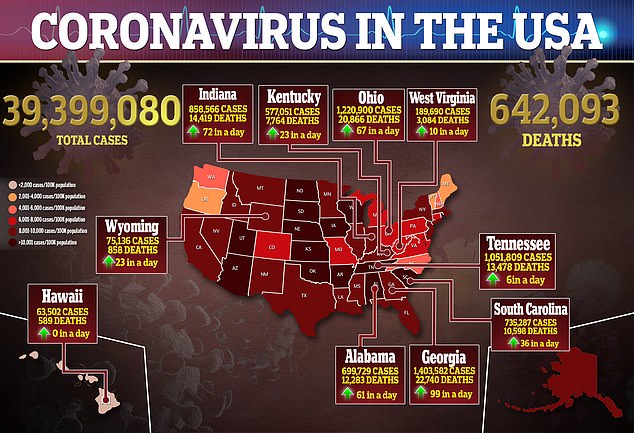新冠幸存者肾脏长期受损风险高出35% “肾功能衰退”可长达30年
上游新闻
9/03/2021
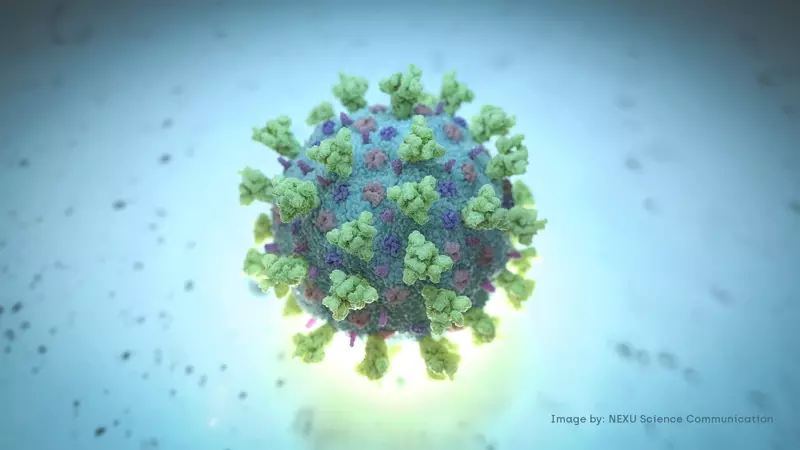
据《今日美国》及英国《每日邮报》等媒体2日报道,一项新研究发现,与未感染新冠病毒的人相比,新冠肺炎幸存者遭受肾脏损害的可能性要高出35%,且“肾功能衰退”可长达30年。科学家认为,这可能是由于免疫系统反应过度引起的。
肾脏长期受损风险高出35%
美国退伍军人健康管理局的研究人员对89000名新冠幸存者及160万名未感染新冠病毒、但有其他疾病的患者进行了研究。研究人员发现,与其他患者相比,感染新冠病毒的人肾脏受损或重要器官功能丧失的可能性高出35%。
在参与该项研究的新冠患者中,有220人肾功能丧失了至少85%——达到晚期肾病的水平。研究人员还发现,新冠患者发生严重肾脏不良事件的风险高1.66倍。这些患者如果之前是住院或重症新冠患者,更有可能失去肾功能。然而,研究人员指出,在非重症新冠患者中,肾脏疾病风险也很明显。
炎症是罪魁祸首?
该研究指出,新冠病毒会对肾脏造成如此严重的损害,以至于它能够使“肾功能衰退”长达30年。科学家们正在努力确定新冠病毒究竟是如何导致肾脏损伤的。一种可能的解释是,新冠病毒以一种损害身体器官的方式过度激活了免疫系统,这一过程称为炎症。这种解释与其他关于新冠肺炎长期症状的研究一致,这表明长期症状与身体不同部位的持续炎症有关。
耶鲁大学医学教授兼肾脏研究员F·佩里·威尔逊博士告诉《泰晤士报》,新冠病毒可能更像是一种肾毒性病毒。肾脏损伤会影响身体调节液体和废物的能力,从而导致肿胀、食欲不振、恶心、虚弱、疲劳和其他问题。晚期肾病可能是致命的。据悉,这项研究于9月1日发表在美国肾脏病学会杂志上。
科学家们表示,他们建议医生和研究人员注意新冠新幸存者的肾脏问题。肾脏受损的人在疾病发展的早期通常不会出现症状,因此对于新冠幸存者来说,接受检测很重要。
科学家们还发现,新冠病毒会长期影响患者的心脏、肺、大脑和其他器官。
Coronavirus survivors are at 35% higher risk of long term kidney damage
todayuknews
9/03/2021
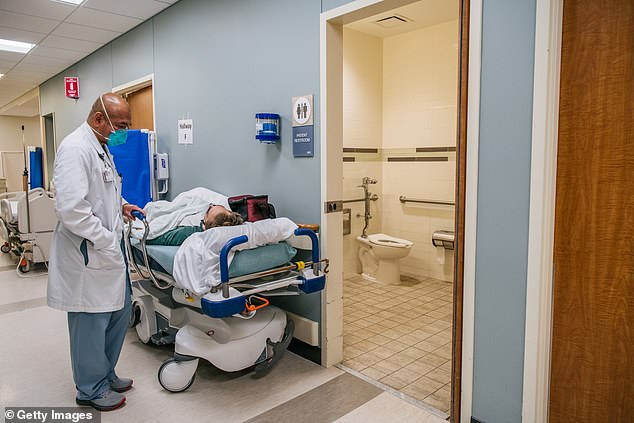
COVID-19 survivors are up to a third more likely to suffer kidney damage than people who avoided contracting the virus, new research suggests.
Veterans Affairs researchers studied 89,000 veterans who overcame Covid, as well as 1.6 million who avoided the virus, and found that those who’d had the virus were 35 per cent more likely to have a damaged kidney, or loss of function in the vital organ.
Scientists are still unsure of the link between the virus and kidney damage, but believe it may be caused by ‘long Covid’ – which sees people whose bodies have cleared the virus continue to experience debilitating symptoms.
They have also speculated that kidney damage may be caused by an immune system overreaction to the virus, with the same issue blamed for a host of other serious Covid-linked side effects.
Still, this study indicates that long Covid patients, survivors, and their doctors should look out for kidney damage, which often does not have clear symptoms early on.
Covid survivors are at risk of serious declines in kidney function, a new study suggests. Pictured: A doctor tends to a patient in the hallway at a hospital in Houston, Texas, August 2021
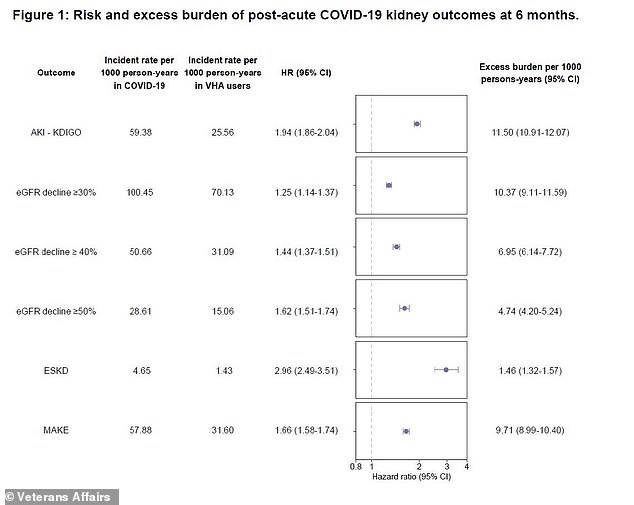
The Covid patients demonstrated a higher risk of kidney damage through several different measurements, the researchers found
Kidney damage impacts the body’s ability to regulate fluid and waste – causing swelling, loss of appetite, nausea, weakness, fatigue, and other issues.
Late-stage kidney disease can be fatal.
The study on kidney damage was published Wednesday in the Journal of the American Society of Nephrology.
Researchers from the Veterans Health Administration analyzed anonymous medical records from about 1.7 million veterans who utilized the VA for treatment between March 2020 and March 2021.
These veterans included 89,000 Covid survivors and 1.6 million patients suffering from other conditions.
The VA researchers examined risks of kidney damage through several different metrics, including a metric of how efficiently the kidney is able to filter toxins from a patient’s blood.
For all metrics, the researchers found, Covid patients had higher risk scores – indicating a higher risk for kidney disease.
In their first six months after infection, Covid patients had a 35 percent higher chance of kidney damage or function declines compared to other patients, Dr. Ziyad Al-Aly, VA researcher in St. Louis and the study’s senior author, told the New York Times.
In one striking finding, the kidneys of Covid patients in this study lost their ability to filter toxins at levels typically seen as patients age.
The Covid patients had a 25 percent higher risk for a 30 percent decline in this crucial kidney function, compared to the non-Covid patients.
Covid patients also had a 44 percent higher risk of a 40 percent decline in function, and a 62 percent higher risk for a 50 percent decline.
These increases mean that a Covid case is comparable to ’30 years of kidney function decline,’ Dr. F Perry Wilson, a medical professor and kidney researcher at Yale who wasn’t involved with the VA study, told the Times.
Among those Covid patients in the study, 220 experienced loss of at least 85 percent of kidney function – reaching the level of late-stage kidney disease.
The researchers also found that the risk of a major adverse kidney event was 1.66 times higher among Covid patients.
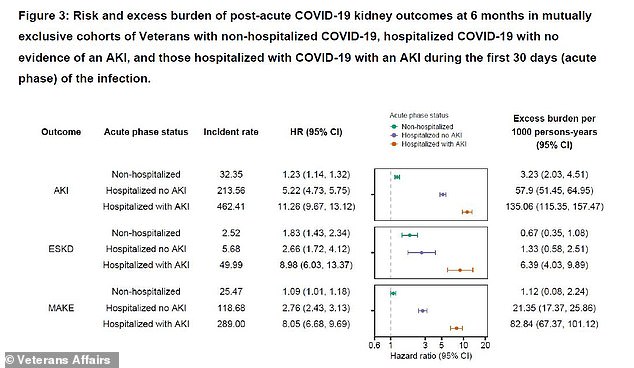
Covid patients who required hospitalization or intensive care during their initial illness were more at risk of kidney damage. AKI refers to acute kidney injury, an abrupt decline in function
For the Covid patients, the risk of kidney disease increased according to how severe their initial bout with the disease had been, the researchers found.
Patients who required hospitalization or intensive care during their initial illness were then more at risk of losing kidney function.
The researchers noted, however, that kidney disease risk was also clear among those who didn’t have severe cases of Covid.
The scientists are still working to determine how, exactly, Covid causes kidney damage. One potential explanation may be that the coronavirus over-activates the immune system in a way that harms the body’s organs, a process called inflammation.
This explanation would be in line with other research on long Covid, which suggests that long-term symptoms are tied to continued inflammation in different parts of the body.
‘Covid is probably a little more of a kidney-toxic virus,’ Dr. Wilson told the Times. ‘I do think that the Covid syndrome has some long-term adverse effects on the kidney.’
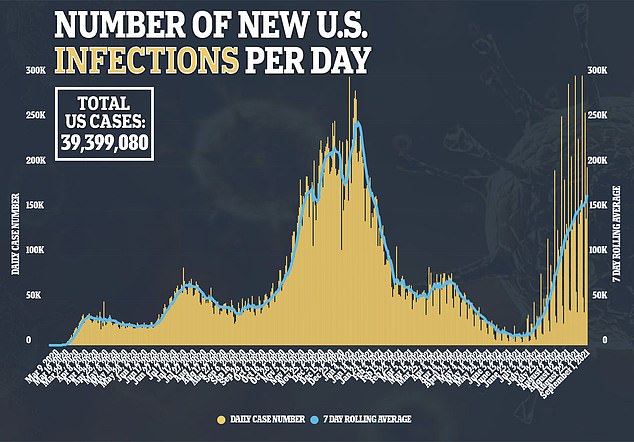
The researchers noted that their study’s applications may be limited, since the VA patients studied are primarily older white men – and many of the patients in the non-Covid group likely had other health conditions.
Still, the scientists and others consulted by the Times say that they recommend other doctors and researchers working with long Covid patients look out for kidney disease.
People with kidney damage often don’t experience symptoms early in their disease progression, so it is important for Covid survivors to get tested for this condition.
‘What’s really important is that people realize that the risk is there and that physicians caring for post-Covid patients really pay attention to kidney function and disease,’ Dr Al-Aly told the Times.
Many among the 39 million Americans who have contracted the coronavirus since the start of the pandemic are still suffering long-term symptoms of the disease.
In a condition called long Covid, patients may experience fatigue, brain fog, respiratory issues, loss of smell, and more symptoms for weeks or months after their initial infection.
Scientists have also found that the coronavirus impacts patients’ hearts, lungs, brains, and other organs long-term.
